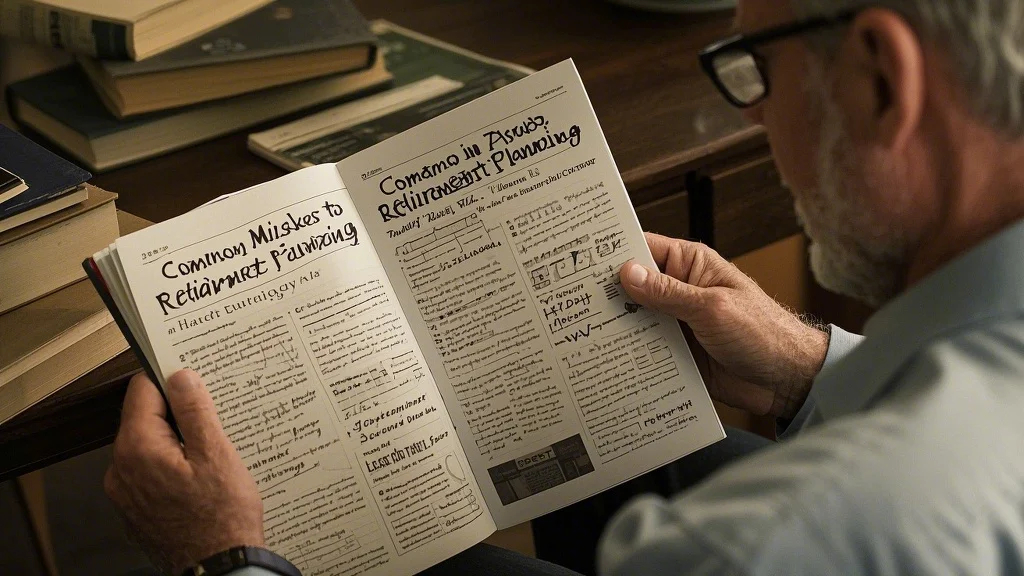Neglecting Comprehensive Retirement Planning
One of the most common mistakes individuals make is failing to engage in thorough retirement planning. Many people focus solely on saving money without considering how they will manage their finances during retirement. This oversight can lead to significant financial challenges later in life. A comprehensive retirement plan should include not only savings goals but also strategies for managing expenses, healthcare costs, and potential long-term care needs.
Another aspect often overlooked in retirement planning is the impact of inflation. Over time, the purchasing power of your savings decreases, which means you need to account for this in your planning. Additionally, many people underestimate their life expectancy, leading to insufficient savings. It’s crucial to consider these factors and regularly review and adjust your retirement plan to ensure it remains aligned with your changing needs and circumstances.
Misunderstanding Retirement Income Strategies
Another critical mistake is not fully understanding retirement income strategies. Many retirees focus solely on their savings without considering how they will generate income during retirement. This can lead to premature depletion of retirement funds. It’s essential to develop a diversified income strategy that includes Social Security benefits, pension plans, and other income sources.
One common error is claiming Social Security benefits too early, which can result in permanently reduced payments. Understanding the optimal time to start receiving benefits based on your individual circumstances is crucial. Additionally, many retirees fail to consider the tax implications of their income sources, which can significantly impact their overall financial situation. Developing a comprehensive income strategy that considers these factors is essential for long-term financial security.
Overlooking Retirement Savings Tips
Many individuals fail to implement effective retirement savings tips, leading to insufficient funds for retirement. One common mistake is not taking full advantage of employer-sponsored retirement plans, particularly if they offer matching contributions. This is essentially free money that can significantly boost your retirement savings. Additionally, many people start saving too late, missing out on the benefits of compound interest.
Another oversight is not regularly increasing contributions to retirement accounts. As your income grows, it’s important to proportionally increase your savings rate. Many people also fail to diversify their investments, putting too much of their savings into a single asset class. This can expose them to unnecessary risk and potentially lower returns. Implementing these savings tips can significantly improve your retirement readiness.
Ignoring Retirement Tax Planning
Failing to consider retirement tax planning is another common mistake that can have significant financial consequences. Many retirees are surprised by the tax implications of their retirement income, which can reduce their available funds. Understanding how different income sources are taxed and planning accordingly is crucial for maximizing your retirement income.
One often-overlooked aspect of tax planning is the impact of required minimum distributions (RMDs) from retirement accounts. These mandatory withdrawals can push you into a higher tax bracket if not properly planned for. Additionally, many people fail to consider the tax benefits of Roth conversions during lower-income years. Incorporating tax planning into your overall retirement strategy can help minimize your tax burden and preserve more of your savings.
Failing to Create a Realistic Retirement Budget
One of the most significant mistakes in retirement planning is not creating a retirement budget. Many people underestimate their expenses in retirement, leading to financial strain. A comprehensive retirement budget should include not only basic living expenses but also healthcare costs, travel, and leisure activities. It’s important to be realistic about your spending habits and plan accordingly.
Another common error is not accounting for unexpected expenses in retirement. Emergencies, home repairs, and other unforeseen costs can quickly deplete your savings if not planned for. Additionally, many people fail to consider the impact of inflation on their budget over time. Regularly reviewing and adjusting your retirement budget can help ensure it remains realistic and aligned with your actual spending needs.
Building a Comprehensive Retirement Strategy
Avoiding these common mistakes requires a comprehensive approach to retirement planning. This includes regularly reviewing and adjusting your plan as your circumstances change. It’s also important to seek professional advice when needed, particularly for complex issues like tax planning and investment strategies. Remember that retirement planning is an ongoing process that requires attention and adaptation throughout your working years and into retirement.
By being aware of these common mistakes and taking proactive steps to avoid them, you can significantly improve your chances of achieving a secure and comfortable retirement. Regular reviews of your plan, staying informed about changes in tax laws and investment options, and maintaining flexibility in your approach are all crucial for long-term financial success in retirement.
